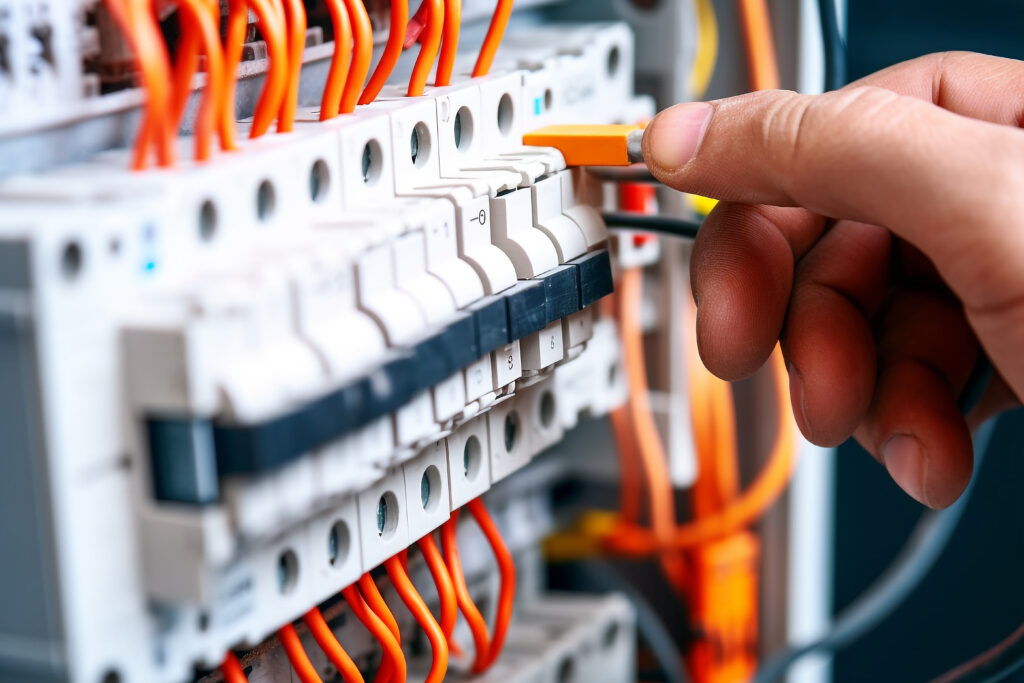
One of the frustrating situations that homeowners may encounter is when the lights in a specific room stop working, but the breaker associated with that room is not tripped. This puzzling issue can leave people scratching their heads and wondering what could be causing the problem. In this article, we will explore some possible reasons for this occurrence and provide insights into troubleshooting the issue.
In some cases, the issue may not be directly related to the outlets themselves, but rather the wiring behind the walls. Faulty or damaged wiring can cause disruptions in the electrical circuit, leading to lights going out in a specific room. This can occur due to aging wiring, poor installation, or even rodent damage. Identifying and addressing wiring issues can be more complex and may require professional assistance. An electrician can conduct a thorough inspection, locate any wiring problems, and make the necessary repairs to restore the functionality of the lights in the affected room.
Can An Outlet Go Bad Without Tripping The Breaker?
In some cases, a faulty outlet can be the culprit behind lights going out in a room without tripping the breaker. Outlets can develop issues over time due to wear and tear or faulty wiring. If there is a problem with an outlet on the circuit, it can disrupt the flow of electricity and cause the lights connected to that circuit to malfunction. It’s important to note that even if an outlet goes bad, it doesn’t necessarily mean that it will trip the breaker.
Can A Bad Outlet Cause Other Outlets Not To Work?
Yes, a faulty outlet can indeed cause other outlets on the same circuit to stop working. Electrical circuits are interconnected, and a problem in one outlet can affect the entire circuit. If a specific outlet on the circuit is damaged or experiencing issues, it can interrupt the electrical flow and cause other outlets downstream to fail as well. Therefore, if you notice lights out in a room and the breaker is fine, it’s worth checking all the outlets on that circuit for any signs of damage or malfunction.
Why Would Lights Not Work But Outlets Do?
There are several possible reasons why lights may not work while outlets on the same circuit continue to function properly. One common explanation is a problem with the light fixture itself. A burnt-out light bulb or a loose connection within the fixture can result in lights not turning on. Additionally, a faulty light switch can also cause lights to stop working. It is important to inspect the light fixture, replace the bulb if necessary, and check the switch to ensure it is functioning correctly.
Another possibility is a wiring issue within the walls. Electrical circuits consist of a complex network of wires, and if there is a break or damage in the wiring specific to the lights, they may fail to work while the outlets remain operational. Identifying and resolving wiring problems can be more challenging and may require the assistance of a professional electrician.

How Do You Check For A Bad Outlet On A Circuit?
If you suspect a bad outlet is causing the lights to go out, there are some steps you can take to investigate the issue. Here’s a simple guide to help you check for a faulty outlet on a circuit:
- Turn off the power: Before examining any electrical outlet, ensure that you turn off the power to the circuit by flipping the corresponding breaker in the electrical panel.
- Visual inspection: Inspect the outlet for any visible signs of damage, such as scorch marks, loose wires, or a broken faceplate. If you notice any obvious issues, it’s a good indication that the outlet is faulty.
- Test the outlet: Use a multimeter or a non-contact voltage tester to check if the outlet is receiving power. Follow the manufacturer’s instructions and test the voltage on the outlet’s terminals. If there is no power, it could indicate a problem with the outlet.
- Replace the outlet: If you determine that the outlet is indeed faulty, it is recommended to replace it. Make sure to turn off the power at the circuit breaker and carefully disconnect the wires from the old outlet before installing the new one. It’s advisable to consult an electrician if you are unsure about the process.
Conclusion
Experiencing lights going out in a room without the breaker tripping can be a perplexing situation. While there can be various reasons behind this issue, a faulty outlet is a common culprit. A bad outlet can disrupt the electrical flow, leading to lights not working while the breaker remains unaffected.
Additionally, a faulty light fixture or a problem with the light switch can also cause lights to stop functioning. By inspecting the outlets, testing for power, and replacing any faulty components, you can resolve the problem and restore proper lighting to the affected room. If troubleshooting becomes challenging or if you are uncertain about handling electrical issues, it is always best to consult a qualified electrician for assistance.


